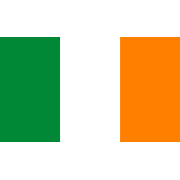General information
Ireland is set to modernize its invoicing and VAT reporting systems as part of a national initiative to enhance efficiency. The government has initiated a public consultation in 2023, to explore how digital technologies can streamline these processes, with plans to publish a comprehensive report based on the feedback received.
The proposed changes are as following:
- Mandatory Electronic Invoicing: The introduction of compulsory electronic invoicing and reporting for intra-community transactions is on the table.
- Standardization of Digital Reporting: Efforts will be made to standardize reporting requirements across businesses.
- Continuous Transaction Controls (CTC): Ireland is evaluating the implementation of CTC models, which involve real-time VAT reporting.
Currently, electronic invoicing in Ireland is not mandatory; it relies on mutual agreement between parties. However, any electronic invoicing system used by VAT-registered businesses must comply with specific criteria, including:
- Record Generation and Archiving: Systems must generate, store, and archive electronic records in compliance with VAT regulations.
- Accessibility: Records must be readily accessible to the Irish Revenue upon request.
- Reproduction of Records: Businesses must be able to reproduce required records in paper or electronic formats.
- Organized Record Keeping: Electronic records should be organized for easy retrieval using key references like names and dates.
- Integrity and Authenticity: Systems must ensure the integrity of content, verify document authenticity, and maintain a reliable audit trail.
These changes aim to improve the efficiency of VAT reporting and compliance for businesses operating in Ireland.
Other news from Ireland
Ireland to Mandate E-Invoicing for Domestic B2B Deals Starting November 2028
 Ireland
Author: Ema Stamenković
Ireland
Author: Ema Stamenković
Starting November 1, 2028, Ireland mandates electronic invoicing for B2B transactions to enhance VAT compliance. Beginning on November 1, 2028, Ireland intends to impose a mandatory electronic invoicing system for business-to-business (B2B) transactions. As part of larger initiatives to modernize VAT compliance, Ireland is now the most recent EU member state to implement e-invoicing. Under the ne... Read more



Ireland Unveils Roadmap for Domestic B2B E-Invoicing and Real-Time Tax Reporting
 Ireland
Author: Ema Stamenković
Ireland
Author: Ema Stamenković
On 8 October 2025, the Irish Revenue published a roadmap for implementing e-invoicing and real-time reporting in line with EU ViDA, phased from November 2028 to July 2030, to support businesses and combat VAT fraud The Irish Revenue published a document on October 8, 2025, outlining the work it is doing to get ready for the EU's VAT in the Digital Age (ViDA) requirements. ViDA is an initiative to... Read more



Ireland: Minister’s Announcement on VAT Changes
 Ireland
Author: Ema Stamenković
Ireland
Author: Ema Stamenković
Revenue announced a phased rollout of mandatory domestic B2B e-invoicing, impacting various businesses, with details to be clarified in a paper released tomorrow. This initiative supports VAT modernization and aligns with EU ViDA reforms. Additionally, adjustments to the 9% VAT rate for food and other services introduce complexity, while retaining it for energy aids. The minister announced Revenue... Read more



Ireland: EU Issues Guidance on VAT Scheme for SMEs
 Ireland
Author: Ema Stamenković
Ireland
Author: Ema Stamenković
Irish Revenue provides guidance on the EU VAT SME Scheme, allowing small enterprises under €100,000 to sell goods and services without VAT, effective January 1, 2025 The new EU VAT SME Scheme went into effect on January 1, 2025, and the Irish Revenue has released its application guidelines. Small businesses that make less than €100,000 annually are eligible for the program, which enables the... Read more



New document was uploaded: Important Characteristics of the System - Ireland
 Ireland
Author: Ema Stamenković
Ireland
Author: Ema Stamenković
The purpose of this document is to emphasize the most important characteristics and requirements regarding receipts, invoices, return policies, online sales, record keeping, cash registers, VAT recording, penalties and store registration in the system of the United Kingdom. Read more
Subscribe to get access to the latest news, documents, webinars and educations.
Already subscriber? Login


New document was uploaded: Legal Q&A - Ireland
 Ireland
Author: Ema Stamenković
Ireland
Author: Ema Stamenković
The Q&A document is an essential resource that provides clear answers to the most frequently asked questions in retail. It saves valuable time by consolidating complex information into a practical and accessible format. Prepared by our team of experienced experts, it addresses key issues such as document types, business processes, registration process and the applicable laws and regulations. Read more
Subscribe to get access to the latest news, documents, webinars and educations.
Already subscriber? Login


New document was uploaded: Topic interpretation: Online Sales in Ireland
 Ireland
Author: Ema stamenković
Ireland
Author: Ema stamenković
The purpose of this document is to describe Irish online sales procedures. In order to sell goods in In Ireland, certain rules must be put in place. Companies must abide by certain rules to guarantee their online operations, including the Data Protection legislation, The Distance Selling Regulations and The Electronic Commerce Regulations. Read more
Subscribe to get access to the latest news, documents, webinars and educations.
Already subscriber? Login

